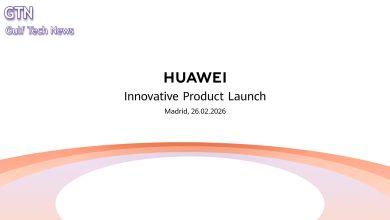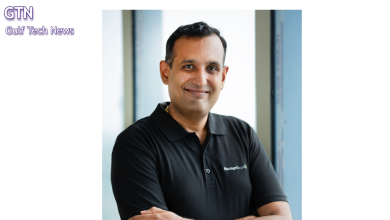Nokia, stc and CST conduct first 7 GHz spectrum trial in MEA, advancing Saudi Arabia’s 6G leadership in the region

- First field trial of the 7 GHz “golden band” for 6G in the MEA region positions Saudi Arabia as a frontrunner in global 6G development
- Successful PoC with Nokia’s pre-commercial 7 GHz AirScale Massive MIMO radio demonstrates early readiness for band expected to be standardized for 6G
- Collaboration highlights Saudi Arabia’s leadership in spectrum innovation and Nokia’s technology leadership in shaping the future of mobile networks
Nokia, CST (Communications, Space and Technology Commission) and stc today announced the successful completion of the Middle East and Africa (MEA) region’s first 7 GHz spectrum field trial, a significant step in preparing for future 6G mobile services. Conducted in Yanbu, Saudi Arabia, the trial demonstrated the performance of using the 7 GHz band for telecommunication services, using Nokia’s pre-commercial AirScale Massive MIMO radio.
The 7 GHz spectrum (7.125 Ghz – 8.4Ghz), often referred to as the “golden band” for 6G, is widely expected to be standardized as an International Mobile Telecommunications (IMT) band by 2030. With large contiguous bandwidth and characteristics that enable an optimal balance of coverage, capacity and signal penetration, it is set to play a central role in enabling next-generation services and applications.
By validating early use of the band, Nokia, CST and stc are accelerating industry discussions on spectrum allocation and positioning Saudi Arabia at the forefront of 6G innovation.
The trial conducted with stc, benchmarked 7 GHz pre-6G performance against a live 5G Standalone (SA) network operating on the 3.6 GHz band. Despite complex outdoor conditions, the results showed that throughput performance at 7 GHz was broadly on par with 5G SA across multiple test points and scenarios.
The trial further highlighted how advanced innovations of higher massive MIMO order with Nokia’s pre-commercial AirScale Massive MIMO radio can help compensate for band differences and deliver consistent performance. In parallel, initial studies also explored how future 6G use of 7GHz band can coexist with existing microwave fixed links, paving the way for smoother spectrum evolution.
Mohammad AlJanoobi, Deputy Governor for Radio Spectrum, CST, said “Saudi Arabia is committed to shaping the global spectrum standardization landscape for future IMT technologies, and it is actively contributing to the ITU preparations for WRC 2027.
This successful field trial of the 7 GHz band underscores that commitment. It is a major milestone in positioning Saudi Arabia as a global leader in spectrum standardization and 6G enablement, and it demonstrates the value of close collaboration among regulators, services providers, and technology providers.”
Haithem AlFaraj, Group Chief Technology Officer, stc, said: “stc is focused on bringing the latest innovations to our customers and ensuring that Saudi Arabia remains among the firsts to benefit from next-generation technologies. Partnering with Nokia and CST on this 7 GHz trial not only proves the potential of the golden band but also reinforces stc leadership in the transformation of telecoms for the future needs of society.”
Ari Kynäslahti, Senior Vice President Strategy & Technology and CTO Nokia Mobile Networks, said: “This 7 GHz trial with stc and CST demonstrates Nokia’s unique ability to deliver the advanced radio solutions that will power 6G networks.
The AirScale radio used in the trial has been tailored to unlock the capacity and coverage potential of the golden band, paving the way for seamless evolution from 5G. Together, we are shaping the future of connectivity and ensuring Saudi Arabia and the wider MEA region are among the first movers in 6G.”





